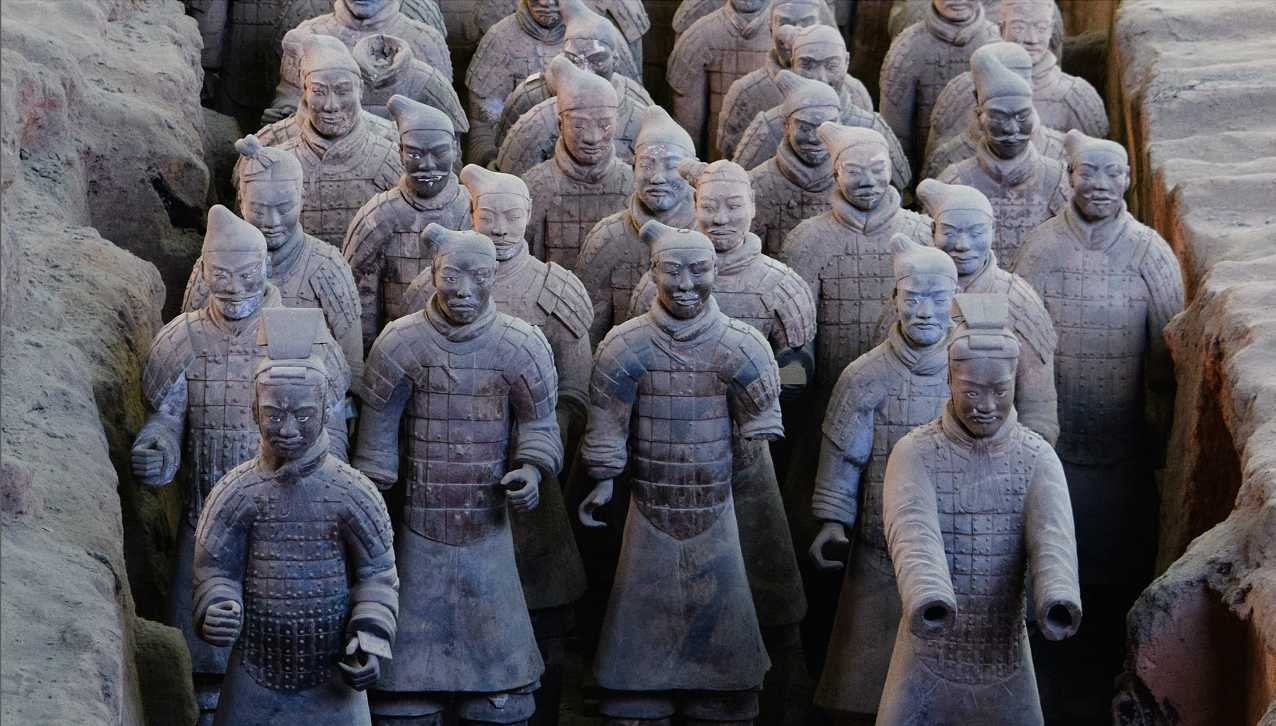
by Sajjad Shaukat Pak VT
China’s National Day is celebrated on October 1st every year to commemorate the founding of the People’s Republic of China on October 1, 1949. On this very day, lots of large-scaled activities are held nationwide. The 7-day holiday from October 1st to 7th is called ‘Golden Week’.
The military parade in Tiananmen Square in Beijing is followed by about 100,000 civilian performers. The nation’s newest military technology is on full display, which includes military tanks, helicopters, fighting aircraft, and China’s new intercontinental ballistic missiles. The parade is usually held after every ten years.
Addressing the 71st anniversary, Chinese Prime Minister Li Keqiang said: “The year 2020, troubled by the coronavirus and the global economic recession, is extremely unusual in the history of China…However; the country has achieved major strategic results by coordinating epidemic controls with economic and social developments”.
During the 70th national anniversary parade in 2019, standing in the Tiananmen Square where after communist forces won a bloody civil war by defeating the ruling Kuomintang-National Party, supported by the imperialist powers, President Xi Jinping stated: “There is no force that can shake the foundation of this great nation”.
Regarding the National Day, BBC wrote on August 25, 2019: “For a long time experts have been speaking about China’s rapid military modernization referring to it as a rising power…Modern China has developed at an extraordinary pace…stood up, grown rich, and become stronger over the past decades…Americano longer enjoys military primacy in the Indo-Pacific…its capacity to uphold a favorable balance of power is increasingly uncertain”.
It is notable that the UK, US, and Australia formed a new Indo-Pacific security alliance, on September 15, 2021, known as AUKUS, while America said that the AUKUS security pact aimed to protect and defend shared interests in the Indo-Pacific region. Defense Analysts opine that the main aim of the AUKUS partnership is to counter China’s influence in the region. These countries are blindly favoring India at the cost of Pakistan and China.
Beijing has criticized the pact, arguing it “severely undermines regional stability and peace, intensifies arms race and undercuts international non-proliferation efforts…It’s highly irresponsible and shows double standards on using nuclear export for geopolitical games”.
It is mentionable that China’s One Belt, One Road (OBOR) or China’s Belt and Road Initiative (BRI), a hugely trade and infrastructure mega-project linking China to markets across central Asia, Europe, and Africa show China’s economic power.
The European Union’s foreign affairs chief Josep Borrell admitted that in Asia, China is “replacing the United States as the center of global power”.
During President Donald Trump’s era, a new cold war had started between China and the US—the rift escalated when both Beijing and Washington closed each other’s consulates, resulting in the deportation of diplomats and the imposing of sanctions on various lawmakers and personalities. Besides, Trump particularly targeted China through a trade war.
And in the South China Sea, to check China’s power, the maritime military exercises led by America near Hawaii—ten countries, especially Australia, Canada, France, Japan, North Korea, New Zealand and the US itself were a signal to China that the US is forming an alliance against China.
President Trump had also withdrawn from the Intermediate-Range Nuclear Forces Treaty—on September 19, 2019, US Defense Secretary Mark Esper stated that Washington wants to quickly deploy new intermediate-range missiles in Asia to counter China’s rise in the region.
Meanwhile, very tensions arose between India and China, including Pakistan when on August 5, 2019, the Indian extremist government revoked articles 35A and 370 of the Constitution, which gave a special status to the disputed territory of the Indian Illegally Occupied Jammu and Kashmir (IIOJK). Indian government bifurcated Jammu and Kashmir into two union territories—Jammu and Kashmir and Ladakh to be ruled by the Center.
Besides Pakistan, China also rejected the Indian malicious acts as “unlawful and void”, saying that India’s decision to “include” some of China’s territory into its administrative jurisdiction “challenged” Beijing’s sovereignty.
In this respect, after a number of rounds of talks, New Delhi and Beijing completed their withdrawal from the Pangong Tso Lake area on February 20, this year in accordance with the agreement, signed by their commanders. While, other parts of the border remain unsettled, and encouraged by US President Joe Biden’s anti-China approach, Indian forces are still making preparations for an all-out war with China.
It is notable that China-Pakistan Economic Corridor China-Pakistan Economic Corridor (CPEC) which is part of China’s OBOR or BRI is rapidly developing. CPEC project will prove to be a gateway to prosperity for both Pakistan and China; including the landlocked Central Asian states. Under the project, China is investing as much as $62 billion in various sectors in Pakistan. Now, the volume project has been expanded.
But, terrorist attacks in Pakistan’s various provinces, particularly in Balochistan show that secret agencies such as the CIA, RAW, and Mossad are destabilizing Pakistan. These entities want to damage the CPEC, as Washington and New Delhi have already opposed this project.
It is worth mentioning that due to a lack of respect for the neighboring countries by Indian Prime Minister Narendra Modi-the leader of the extremist ruling party BJP, Bangladesh, Sri Lanka and Nepal are tilting toward China. For instance, despite India’s concerns, Bangladesh has given the contract of building an airport terminal in Sylhet to a Chinese company. Similarly, Iran decided to go ahead without New Delhi in a Chabahar Port railway project.
Notably, President Xi Jinping stands up to America’s overt and covert tactics against Beijing, taking a more assertive position towards the pro-democracy demonstrations in Hong Kong and China’s claims over Taiwan.
While the Taliban’s recent victory, and humiliated defeat of the US in Afghanistan and its other NATO allies have given another foremost setback, especially to America in terms of the cost of the prolonged war in Afghanistan in wake of drastic implications of the US-led Global War on Terror. In these terms, the US is likely to lose its world power status in the near future.
China, Russia, Pakistan, and Iran which are furthering their cooperation have urged the world to assist the Afghans, as a peaceful and stable Afghanistan is essential for the stability of the entire region. Besides supporting the collective efforts of these countries, the Taliban-led government has, particularly, favored Beijing on a priority basis. It is another factor of America’s political jealousy against China.
Moreover, rejecting the US false allegations against Beijing about Covid-19, Lijian Zhao, a spokesperson for the Chinese Ministry of Foreign Affairs stated on March 12, 2020, that the US athletes participated in the Military World Games, held from October 18–27, 2019 in Wuhan have brought the Coronavirus epidemic to Wuhan from where it originated. In fact, it was part of America’s biological war against Beijing.
At present, China has controlled the coronavirus to a greater extent. The economy of the US and Europe has been paralyzed. Now, America has become the epicenter of this novel disease, giving a major blow to its economy.
China buys 30% of the shares of companies in Europe and the US at a very low price. Beijing has owned companies in Europe and the US. And China decided that these companies to stay in China and earn dollars. The companies, created by America and Europe in China with all the technology put in by these exchanges and their capital they passed into the hands of China, which is now rising with all that technological potential and will be able to set prices at will to sell everything they need to the West.
On the whole, the Biden administration’s foreign policy often lacks a clear strategic aspect. In contrast, China knows exactly where it wants to go and it has the strategy and the means to get there.
Sometimes, the hunter becomes the hunt and the gunner himself becomes a target. It happens so with the US.
Sajjad Shaukat writes on international affairs and is the author of the book: US vs Islamic Militants, Invisible Balance of Power: Dangerous Shift in International Relations
Email: sajjad_logic@yahoo.com

Sajjad Shaukat writes on international affairs and is the author of the book: US vs Islamic Militants, Invisible Balance of Power: Dangerous Shift in International Relations and can be reached at sajjad_logic@yahoo.com
ATTENTION READERS
We See The World From All Sides and Want YOU To Be Fully InformedIn fact, intentional disinformation is a disgraceful scourge in media today. So to assuage any possible errant incorrect information posted herein, we strongly encourage you to seek corroboration from other non-VT sources before forming an educated opinion.
About VT - Policies & Disclosures - Comment Policy



